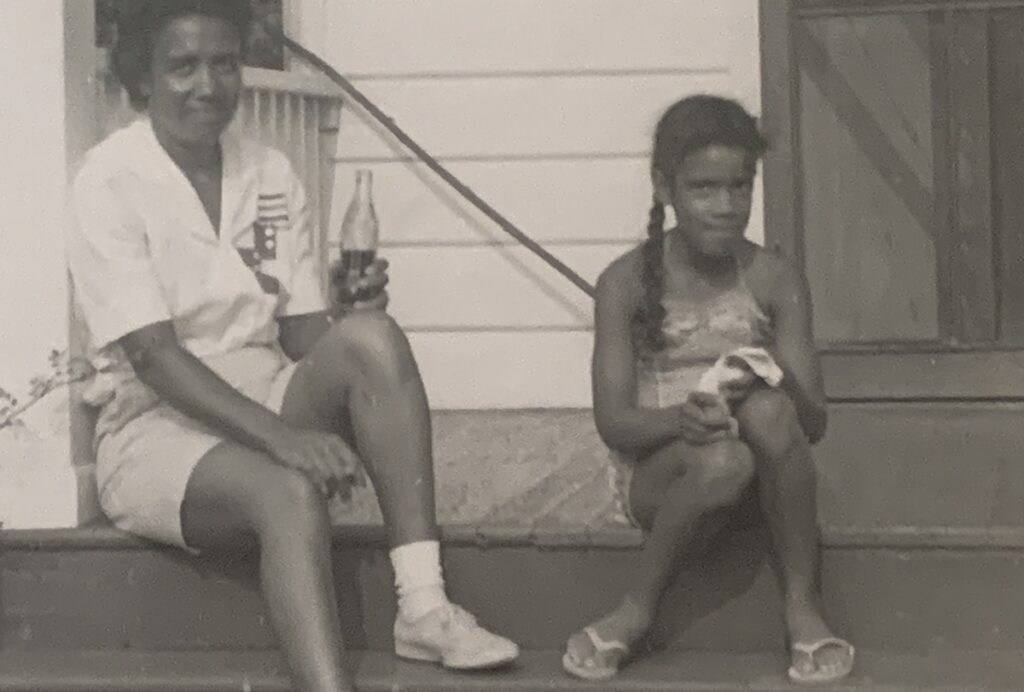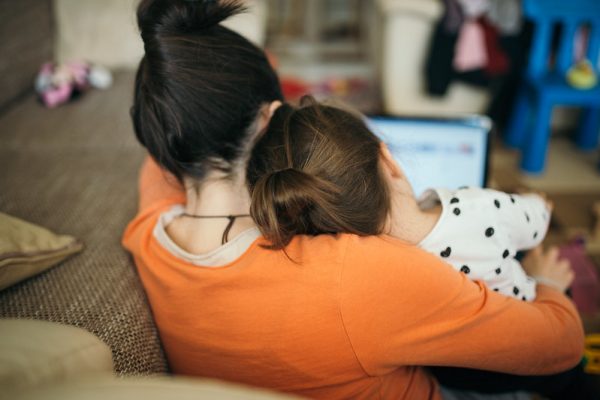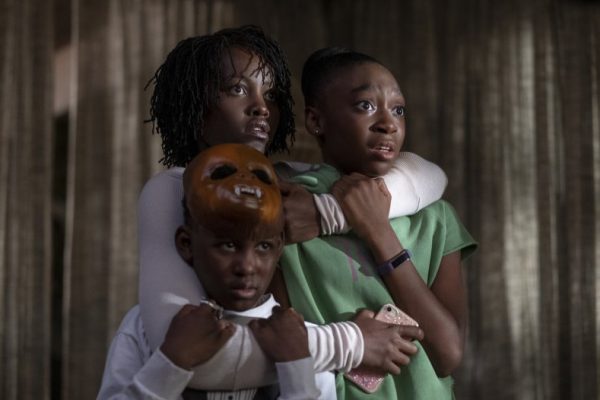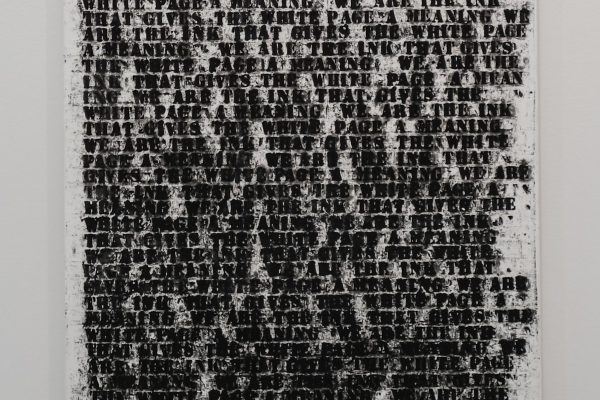When my parents moved to Chapel Hill, North Carolina, they carried their inheritance with them: tattered photo albums whose adhesive had given way and envelopes bursting with fading pictures of the faces of relatives whose names we no longer know. One of my pandemic pastimes became sifting through this vast collection of family photographs.
There are pictures of my mother’s family: my grandfather’s stint in the Navy, my grandmother teaching elementary school students. There are pictures of my mother and her parents traveling across the country, portraits of a Black middle-class family who had a desire to see the world. My grandfather meticulously labeled his blurry pictures of Niagara Falls, the Golden Gate Bridge, Harvard’s Widener Library.
There are far fewer pictures of my father’s family. My father’s childhood was marked by my grandfather’s sudden cancer diagnosis, which launched my father into an early adulthood working in a zipper factory and a candy store. My father became indoctrinated into a set of habits that have shaped his life ever since: he clips coupons. He only buys things that are on sale. He will drive an extra ten minutes to save a fraction of a dollar on gas. He moves through the world with a sense that everything can change on a dime.
As a relief from pandemic teaching, sorting pictures promised a form of mindless labor. I also welcomed the chance to hold the past—to literally touch it, to engage in the practice of what Black feminist legal scholar Patricia J. Williams calls “gathering the ghosts.” As I mother, and as I watch my own mother fade, I am hungry to collect stories of the past, to share them with my daughter so she can hold them and do whatever she pleases with them, including freeing herself from them. She will have to forge her own relationship to her history, to the people who have come before her. But I want her to at least see these pictures, to know that there are predilections, interests, investments, and ways of being in the world that are not just hers, that come from the people before us.
I am a great documentarian of my daughter’s life. I have a picture of nearly every day of her six years of existence. I have videos of her learning how to walk, negotiating her way out of potty training, and reading Bill Martin and Eric Carle’s Brown Bear, Brown Bear, What Do You See? (1967). I know what she looked like on this day two years ago, three years ago, and four years ago. Thanks to my iPhone, my digital archive of her life is expansive, and greatly oriented toward the ordinary. But my family’s photographs are different. They were shot on film, and they are records of an event, even if the event was posing for the picture. There are images of parties and holidays, but few pictures of a new haircut, the clouds as a rainstorm rolled in, a half-eaten breakfast arranged on a plate.
My daughter is part of an archived generation. She can remember pictures of events more than she can remember the actual events. She might not remember watching wet snowflakes slap against the glass of our apartment in Chicago, but she has seen the video, and it has taken the place of memory. I don’t yet know what it will mean for her to narrate the story of herself when she has so much visual evidence of who she was. I piece together my family’s story from lack—the scant images that are preserved. My daughter will have to piece together her story from abundance.
My most recent book, Birthing Black Mothers (2021), was born in a delivery room in Rockville, Maryland, in precisely the moment when my daughter—a sticky screaming mass—was placed on my chest and I whispered to her, “Welcome to the world, it’s nice to meet you.” Ever since, I have devoted my research to Black mothers: Black mothers dying in hospitals; Black infants and their precarity; Black mothers and babies navigating institutional medical spaces like pediatricians’ offices. I think about the current infant formula crisis and its effects on Black infants and their mothers, who are less likely to breastfeed than other parents. And I track how politicians have made Black maternal health a talking point, a left credential, with little attention paid to Black mothers’ actual varied, heterogeneous needs and desires.
As I have researched the death worlds that swirl around Black mothers, I have also mothered. I have mothered as a Black feminist, which means that I have done it—or hoped to do it—with a sense that mothering is about a commitment to relationality and coexistence, sometimes peaceable and sometimes fraught, always alive and dynamic. I have devoted my intellectual life to Black feminist theory, a tradition that informs how I think about nearly everything. It has taught me to approach mothering as a project of living alongside another being who is, in her earliest years, far more vulnerable than I am. What might it mean, this tradition demands that I ask, to imagine the world as capable of caring for the most vulnerable? To insist that the world care for the most vulnerable?
As a Black feminist, mother, and scholar who is weary of how the academic (and political) world treats “racial and gender alterity” as, in literary scholar Ann duCille’s words, little more than “a hot commodity,” I am tired. I read—and write about—Black thinkers who claim Black mothering as a revolutionary act, as a radical practice of making a world to protect Black life. I come to this work keenly aware of how women’s work remains undervalued and invisible—of how thanking women for that work often takes the place of acknowledging the debt owed for it. The pandemic has made clearer than ever how care work is both essential and demonized. We need care; those who provide it are among the least respected in our society.
I don’t see my mothering practices as resistant, revolutionary, or romantic, nor do I want to see them as such. I am not invested in having my choice to prepare eggplant or grilled cheese read as a radical one or even as a political one. Instead, I am interested in the ordinary pleasures of watching my daughter grow. Yet a desire for a world where she—and the friends she holds dear—can grow, live, and breathe is a political one, a claim that has to be asserted in a world motivated by a death drive that has never been more visible.
I would like to live in a world in which Black mothers do not only come into view as political parables of pathology or resilience. I want space for the Black ordinary. Black feminist scholars and activists have often been animated by a single question: What does freedom look like? The Black ordinary is one form of freedom. As a Black mother, this means a world where how I parent—the choices I make about the most seemingly ordinary aspects of daily life—are simply mundane rather than overburdened with meaning. I want to move through the world without the sense that political symbolism is carried on my back.
My daughter is six years old. She has just finished kindergarten, survived a second year of pandemic schooling, and, somehow, in the midst of the brokenness of the world, she has become more herself: a reader, a dancer, a committed friend, a lover of cucumber and avocado rolls, a pen pal, a jokester. I have watched her face become more like mine. I recognize the moments when I see her look back at me with my own dark eyes, and when I see my mother’s face appear on her face. In those moments, I think—feel, even—the histories that bind us, even the ones we don’t know yet, the ones each generation of our family has had to lose and discover, find and tell again. I think of Williams channeling novelist Ruth Ozeki: “What did your face look like before your parents were born?”
Black mothers are dying in disproportionate numbers. I am surrounded by articles that document how the pandemic has intensified the Black maternal mortality crisis. My own Black mother is dying, slowly. She has Alzheimer’s, and I experience it as loss in slow motion. All around me is evidence of how she is slowly fading. All around me is an archive of loss.
But this is not a eulogy. It’s about a set of conditions that made it possible for us—my parents, my husband, my daughter, and I—to live in the same place, that have made possible what is perhaps the biggest pleasure of my life: Sunday dinner. I never cooked before the pandemic. But with a small child suddenly at home full-time, and the anxiety, grief, and tedium of the early days of the pandemic bearing down on us, I turned my attention to food preparation. This survival strategy has become a habit, and a way of making tangible my desire to care for my parents.
Every Sunday, when my mother finishes her meal, she abruptly stands. She grabs plates from the table and walks them into the kitchen. She never lingers at the dinner table for conversation or small talk. Instead, we hear the water running, the scrubbing of the sponges against pots and pans. She hums as she works—humming has become her constant companion as her memory has faded. My mother and I talk less and less now—she has fewer words—but when I hear her standing in the kitchen scrubbing vigorously, I feel her desire to still give me something, to find a way to keep mothering me through the fog of searching for the right words.
I send my parents home with plastic containers full of food. Every Sunday when they come over, they return the empty boxes. Our weeks are marked by this choreography: filling and emptying boxes. I joke that the motto of parenting is, Wash, dry, repeat. There is a rhythm—sometimes relentless, sometimes comforting—to life with a still-small child. There is a rhythm—sometimes relentless, sometimes comforting—to life with aging parents. I cook, I feed them, my mother scrapes our plates and cleans our kitchen: Wash, dry, repeat.
I often tell my daughter—not in the register of the morbid, but in the register of something I can only call truth—that what we have now is not permanent. I remind her, though I know she is too young to fully understand it, that the world we have now, where my parents join us each Sunday for dinner, is fragile. I tell her that one day, they might not be able to do it, or they might not be able to do it together. I see her imagining my father coming to our house without my mother. We have had exactly two moments where he has come to our house without her, and we have all found it dizzying. None of us name it as such, but we share the strange sense of what might come. My mother is already not entirely with us, not as she used to be. But the idea of her wholly absent is unbearable. It is agonizing to say all of this to a six-year-old. It is utterly necessary to say it to her.
Last night, my daughter and I sat next to each other sorting family pictures. We made two piles: old and very old. My daughter held up a picture of my mother in which her animated face is caught mid-laugh. She said, “Grandma’s smile looks the same as now.” I want her to know that our routine is as fragile as that smile. I want her to know that my mother’s smile over Sunday dinner is its own delicate and profound pleasure, that it will not last no matter how desperately we want it to. I want her to know that we might not name this as pleasure right now, we might only call it Sunday dinner, as the way we begin each week, as ordinary as dicing onions and marinating salmon, as ordinary as the sound of a sponge scrubbing the bottom of a pan.








